HS-ETS1-3
Evaluate a solution to a complex real-world problem based on prioritized criteria and trade-offs that account for a range of constraints, including cost, safety, reliability, and aesthetics, as well as possible social, cultural, and environmental impacts.
-
 Physics
PhysicsStaying grounded in space requires artificial gravity
On TV, people in space walk around like they’re on Earth. How can science give real astronauts artificial gravity? Spin right round, baby.
-
 Brain
BrainPatterns in brain activity can identify who will struggle to read
Certain patterns of brain activity predict whether teens are strong readers or will struggle. Those diagnostic patterns show up even when doing math.
-
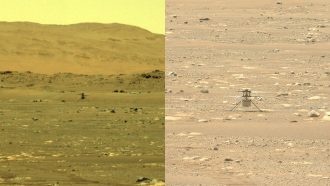 Space
SpaceIngenuity helicopter makes history by flying on Mars
The copter's 40-second-long flight in the Red Planet’s thin air is only the first in a planned series of daring flights.
-
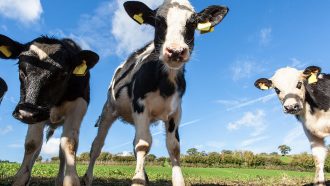 Animals
AnimalsAnalyze This: Cows burp less methane after early-life treatment
Calves that receive the 14-week treatment belch less of the greenhouse gas, possibly due to shifts in their gut microbes.
-
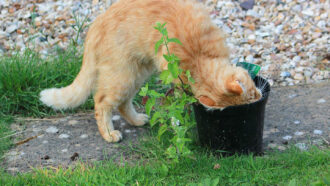 Plants
PlantsScientists may have finally found how catnip repels insects
The plant deters mosquitoes and fruit flies by triggering a chemical receptor that, in some animals, senses pain and itch.
-
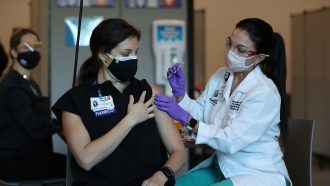
Moderna and Pfizer vaccines appear to cut coronavirus spread
The vaccines are about 90 percent effective at blocking infection, which should cut spread of the virus. And at least one vaccine works well in teens.
-
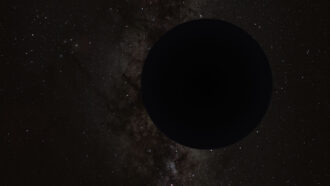 Planets
PlanetsSigns of a hidden Planet Nine in our solar system may be an illusion
Hints of the remote planet, also called Planet X, relied on clumped up orbits of bodies beyond Neptune. A new study suggests that clumping doesn’t exist.
-
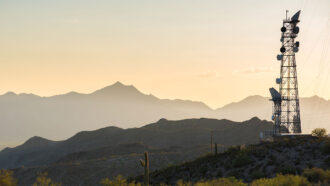 Tech
Tech5G promises new energy savings for digital tech
A new way to transmit wireless communications promises time and energy savings by using networks of smaller cells.
-
 Tech
TechGreening your digital life
The less electricity you use while playing video games or using your devices, the less impact you’ll have on climate change.
-
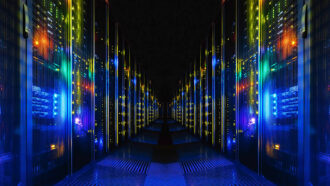 Tech
TechTraining AI to be really smart poses risks to climate
As artificial intelligence models grow larger and consume more energy, experts have begun to worry about their impact on Earth’s climate.
-
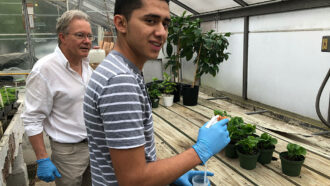 Science & Society
Science & SocietyWhen COVID-19 comes for your science fair
When labs shut down due to COVID-19, teens took their science fair projects to the internet and … sometimes even to the bathroom.
-
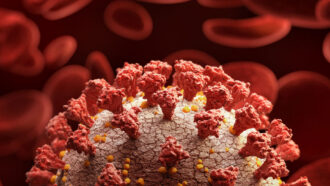 Health & Medicine
Health & MedicineSome young adults will volunteer to get COVID-19 for science
Researchers will soon give some healthy people the new coronavirus. Their young volunteers have agreed to get sick to speed coronavirus research.